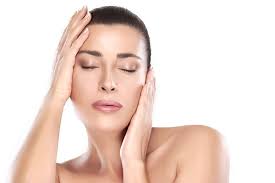With a focus on youth and beauty in western culture, you may be proactively considering ways to maintain vibrant, glowing skin for as long as possible. A common question people often ask is, “When should I start an anti-aging skincare routine?” The truth is, it’s never too early to start taking care of your skin. Developing a regimen as a young adult can help to counteract the damage that has occurred as early as childhood and adolescence with sun exposure, acne, and other lifestyle contributors. Keep reading to learn more about building a customized skincare routine, why it’s important, and at what age you should start.
About the Aging Process
There are three proteins that act as the building blocks of healthy skin. They are collagen, elastin, and hyaluronic acid. When we’re young, we have these substances in abundance, providing us with smooth, supple, and glowing skin. Throughout the aging process, their production begins to dwindle. We start to see fine lines, sagging skin or a dull complexion. We owe our plump, voluminous skin to collagen. Elastin, as its name suggests, gives skin its elasticity, keeping wrinkles at bay. Our skin stays moisturized and hydrated with hyaluronic acid. Caring for your skin properly can help it to maintain its youthful appearance for longer.
Components of an Anti-Aging Skincare Routine
If you’re feeling overwhelmed about the prospect of beginning a confusing new practice, there’s no need to fret. Each person’s skincare approach is unique and can be as simple or as complicated as they wish. Your skin care goals, along with the current condition of your skin and lifestyle, should guide your choices. Let’s take a look at what’s included in a typical regimen.
You’ll want to start with sun protection. An SPF of at least 30 should be worn all year long. It’s a powerful tool in your anti-aging arsenal. A facial cleanser is also important in order to remove dirt, oil, and grime. You’ll want to choose a wash that is targeted for your skin type, either dry, oily, or combination. Toner refreshes skin and shrinks pores. A simple moisturizer is another crucial component that provides you with the added hydration you need.
When to Start Anti-Aging Treatments
Experts have varying opinions on when is the best time to begin an anti-aging regimen. The fact is, genetics, lifestyle habits, nutrition, and other factors also play a role in the condition of your skin. Therefore, it’s impossible to predict whether starting to care for your skin in your teens or 20s will prevent sagging skin, wrinkles, or other signs of aging.
However, there are a number of benefits to taking good care of skin. When you use products designed for your skin type and needs, you provide a smooth foundation for your makeup. Healthy skin will also absorb products more efficiently, allowing them to work better. So, if you’re just now entering your 20s and haven’t started a practice of caring for your skin, now’s probably a good time to do so.
If you’re older and are seeing tell-tale red flags like forehead creases, crow’s feet, or jowls, it’s not too late to address the issues. Your age and presenting problems will be your guide as to what types of products you need to add to your routine. A simple facial wash, sun protection, and light serum may be plenty if you’re in your 20s or early 30s. More mature people may benefit from more targeted and powerful products such as those containing retinol or hyaluronic acid. It’s possible that you could benefit from professional cosmetic procedures such as Botox, dermabrasion, or even a facelift in NYC. You don’t have to settle for an appearance you’re not happy with. As long as you are physically healthy and emotionally well, choosing to obtain aesthetic treatment can be an empowering and affirming decision.
Healthy skin is possible at any age. One of the best ways to attain it is with early preventive methods and building healthy habits. However, it’s never too late to address problematic issues or implement an anti-aging skincare routine. If you find that you’re not happy with the current condition of your skin tone and complexion, there are improvements you can make through aesthetic treatments and procedures.


